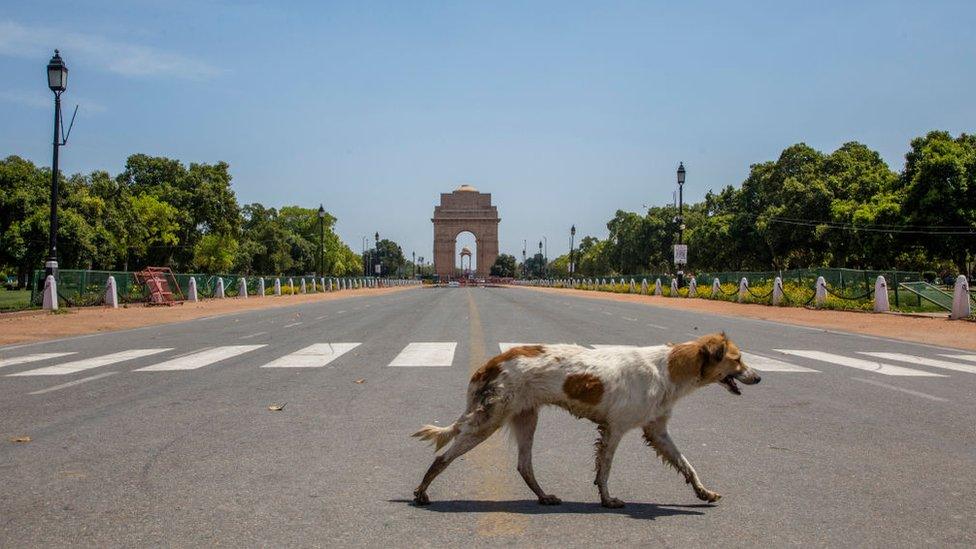India's Maharashtra state announces 15 days of tough new Covid measures
- Published
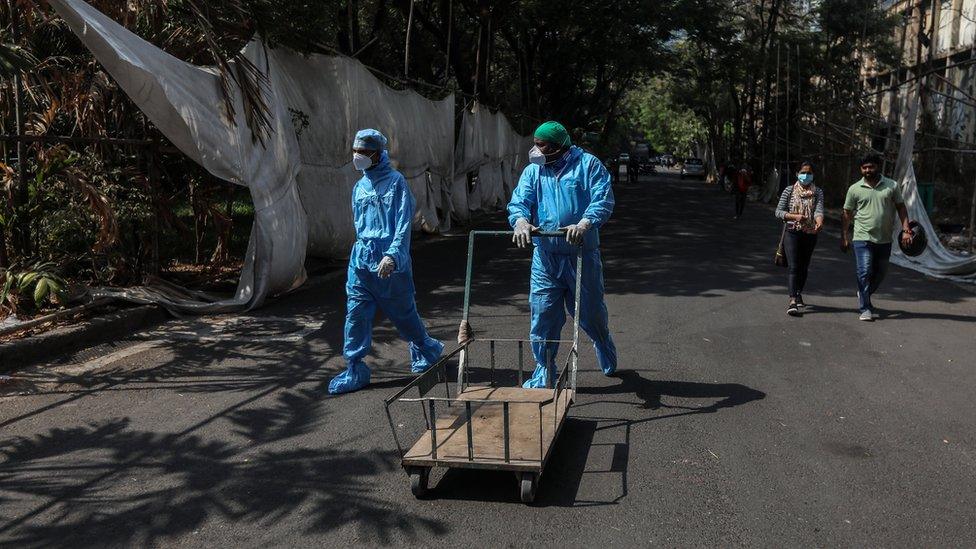
Health workers walk pass a quarantine centre in Mumbai, Maharashtra's and India's biggest city
Maharashtra, the Indian state worst affected by the coronavirus, has announced sweeping new restrictions amid a wave of Covid-19 infections.
Chief Minister Uddhav Thackeray stopped short of calling it a lockdown, but said for the next 15 days, only essential services would function.
Mr Thackeray said gatherings of more than four and non-essential travel on public transport would be banned.
"The war has begun again," the chief minister said at a press conference.
"Now is the time for action," he added. "I am not saying a lockdown just now, but strict restrictions. I know bread and butter is important but saving lives is important."
He also acknowledged the need for more oxygen, saying supplies would be sought through the military.
Maharashtra is India's richest state and home to its biggest city, Mumbai. It has been the hardest hit in the nation by the coronavirus pandemic. The state reported 51,751 new Covid-19 cases on Monday and 258 deaths.
Prime Minister Narendra Modi has reportedly asked specialist teams to visit the state to investigate why there has been such a dramatic spike in case numbers. The state announced tighter restrictions a week ago after India saw its highest day of infections since mid-September, with 93,249 new cases.
More than half of those cases were in Maharashtra.
Last week's new measures - including a night-time curfew and a ban on public gatherings - will remain during the new 15-day period.
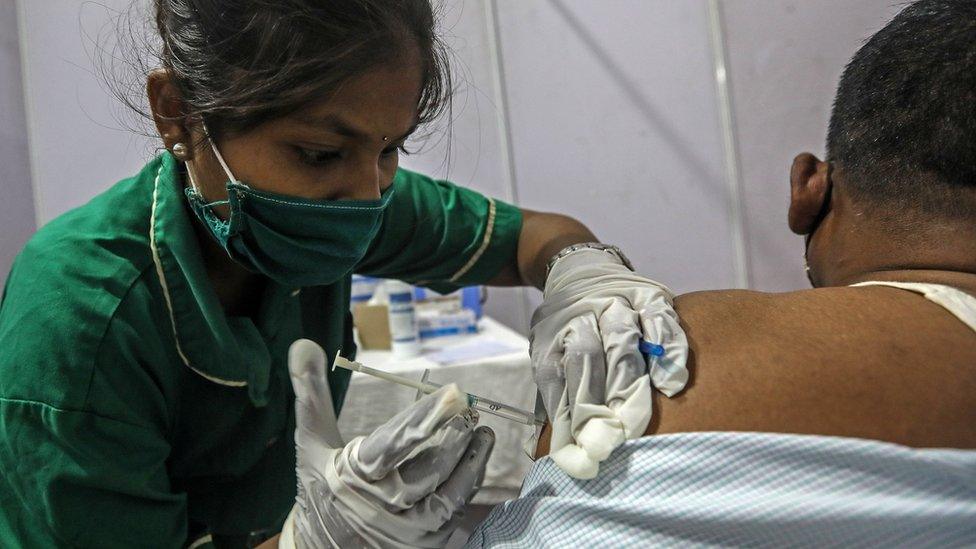
A man receives a vaccine shot at a vaccination centre in Mumbai, April 2021
About 165,000 people are reported to have died of Covid-19 in India and there have been 12.5 million confirmed infections. The country's mass inoculation drive, the largest in the world, has proceeded at a slower than expected rate - about 100 million doses of the Covishield and Covaxin vaccines have been administered so far, but the government has said it wants to vaccinate 250 million people by July.
Also on Tuesday, India authorised the emergency use of Russia's Sputnik V vaccine and agreed to fast-track approval for the Pfizer, Moderna, and Johnson & Johnson shots.
Sputnik V is the third drug to be approved by India after Oxford-AstraZeneca's Covishield and Covaxin, which was developed by Indian firm Bharat Biotech. Sputnik V's approval came as India overtook Brazil to become the country with the second-highest number of cases globally.
India has the largest vaccine manufacturing capacity in the world and exported tens of millions of doses to smaller nations before a spike in cases increased domestic demand.
'Everybody should get jabs as cases are rising'
- Published21 March 2021
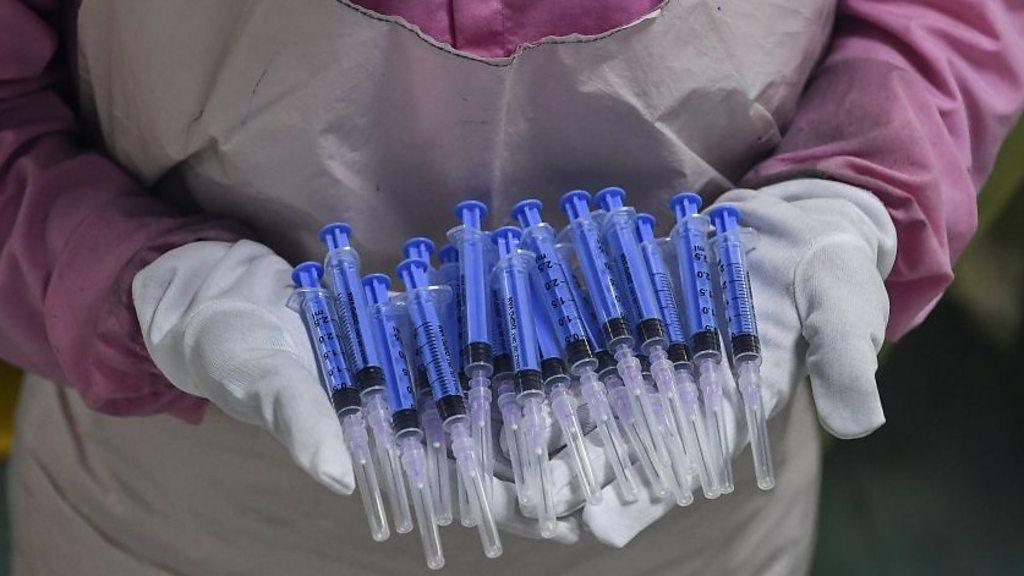
- Published1 June 2022
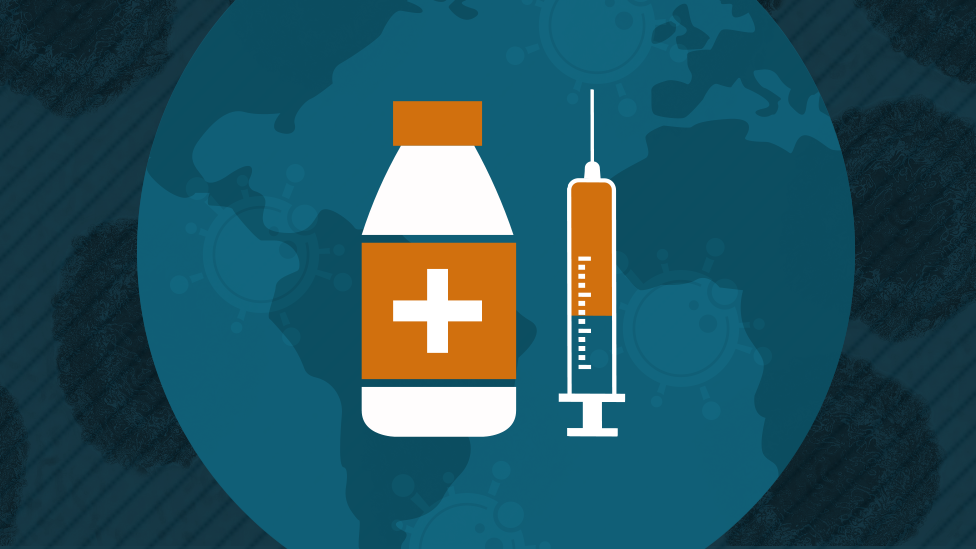
- Published31 December 2021
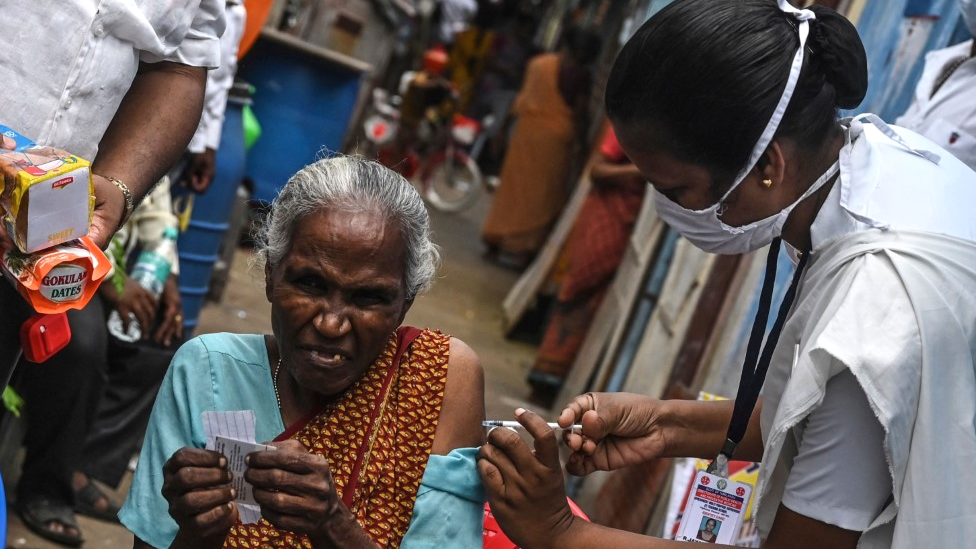
- Published18 July 2022
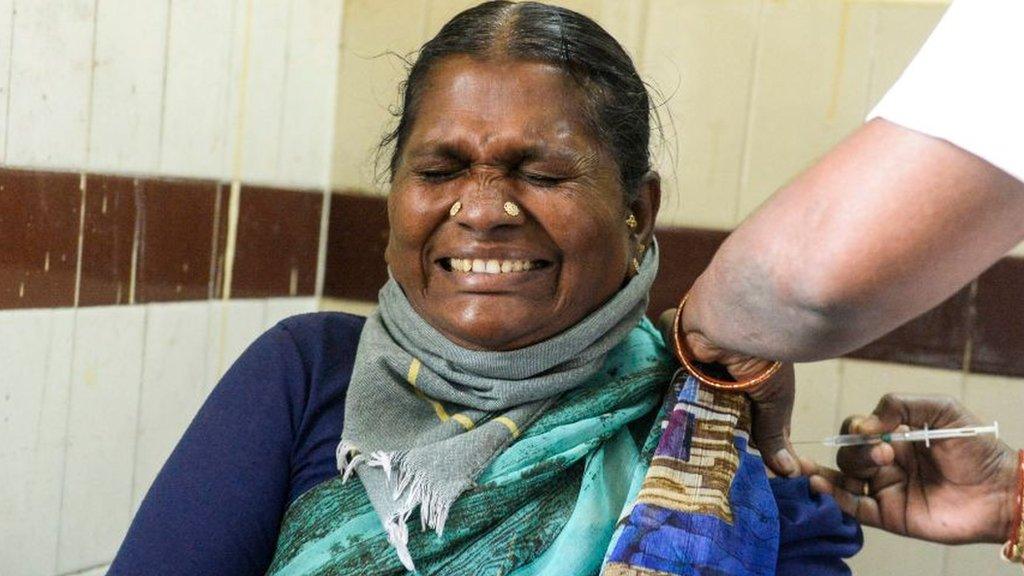
- Published29 March 2021
